Question And Answer
Publications
Articles, publications, books, tools and multimedia features from the U.S. Institute of Peace provide the latest news, analysis, research findings, practitioner guides and reports, all related to the conflict zones and issues that are at the center of the Institute’s work to prevent and reduce violent conflict.
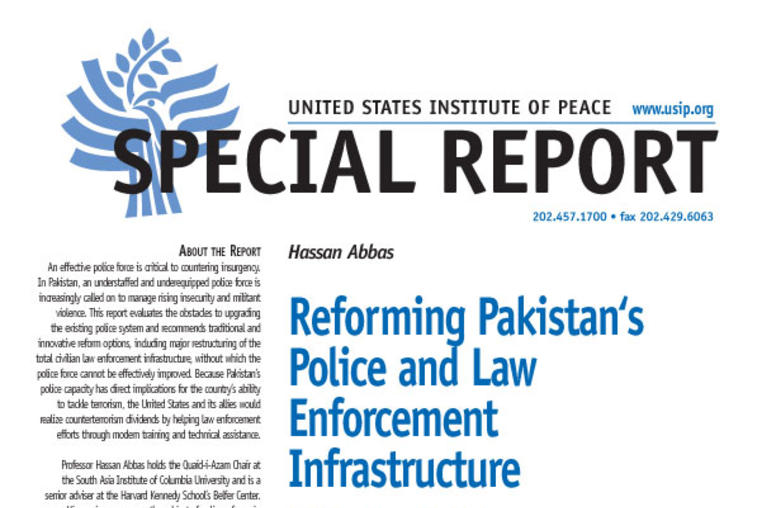
Reforming Pakistan‘s Police and Law Enforcement Infrastructure
An effective police force is critical to countering insurgency. In Pakistan, an understaffed and underequipped police force is increasingly called on to manage rising insecurity and militant violence. This report evaluates the obstacles to upgrading the existing police system and recommends traditional and innovative reform options, including major restructuring of the total civilian law enforcement infrastructure, without which the police force cannot be effectively improved.
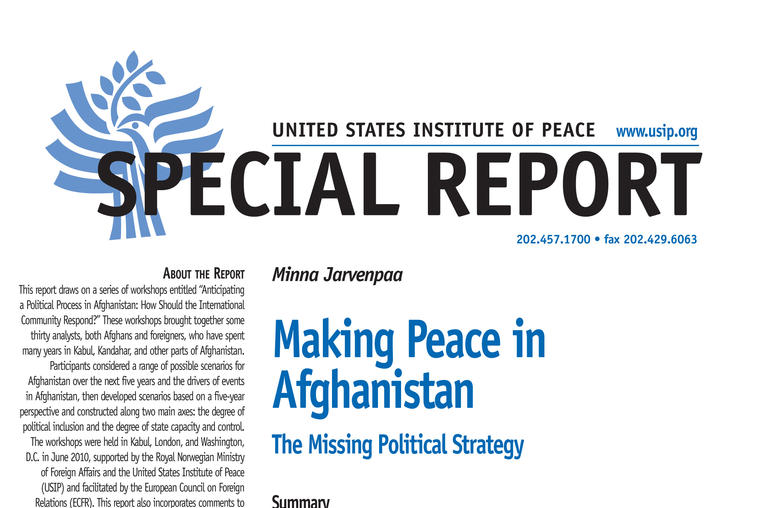
Making Peace in Afghanistan
This report draws on a series of workshops entitled “Anticipating a Political Process in Afghanistan: How Should the International Community Respond?” These workshops brought together some thirty analysts, both Afghans and foreigners, who have spent many years in Kabul, Kandahar, and other parts of Afghanistan. Participants considered a range of possible scenarios for Afghanistan over the next five years and the drivers of events in Afghanistan, then developed scenarios based on a five-year p...
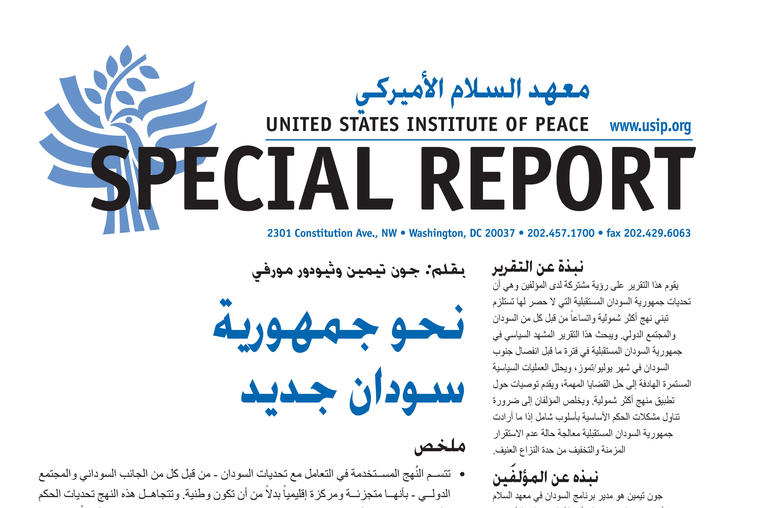
Toward a New Republic of Sudan
The exclusionary governance that led South Sudan to secede from the rest of Sudan continues to bedevil the government of the new Republic of Sudan to the north. Both the July secession and the Arab Spring could provide the impetus the ruling party needs to lead national governance reforms and to engage its diverse citizenry in making a new constitution.
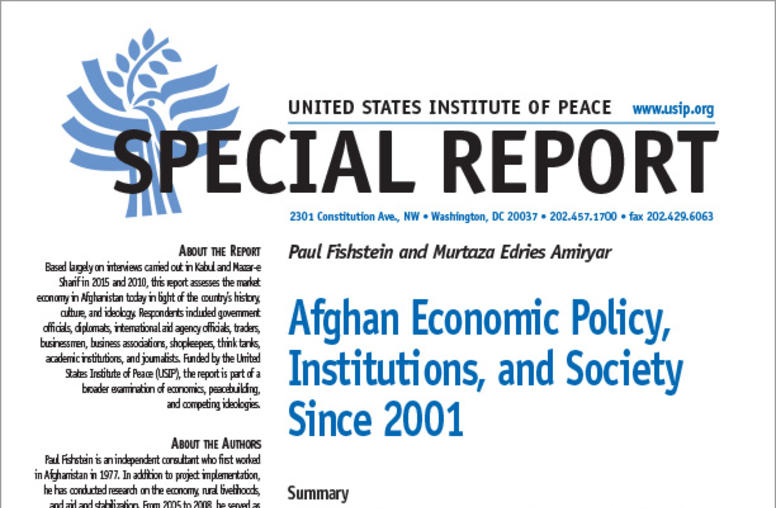
Afghan Economic Policy, Institutions and Society Since 2001
The general expectation among Afghans after the fall of the Taliban was that the state, equipped with financial resources and technical assistance from the international community, would once again take the lead in the economic sphere. Instead, Kabul adopted a market economy. The move remains controversial in some quarters. This report, derived from interviews conducted in 2015 and 2010, takes stock of the competing ideologies in Afghanistan today with respect to the economy.
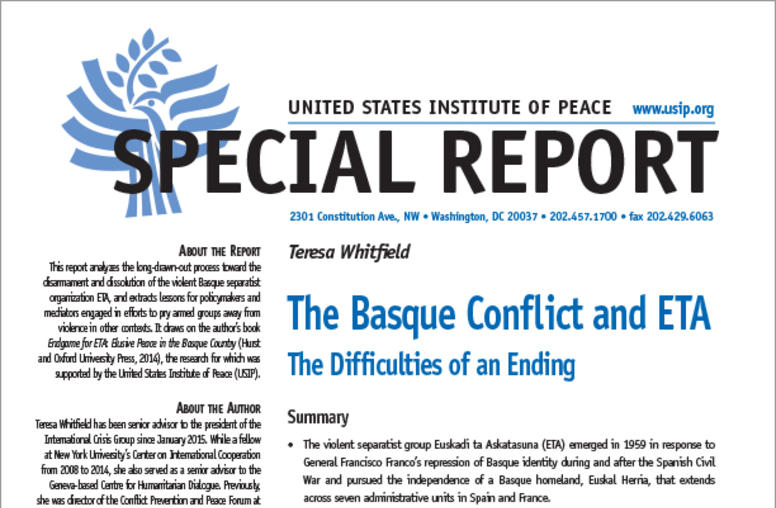
The Basque Conflict and ETA: The Difficulties of an Ending
Violence at the hands of the Basque separatist organization ETA was for many years an anomalous feature of Spain’s transition to democracy. This report, which draws on the author’s book Endgame for ETA: Elusive Peace in the Basque Country (Hurst and Oxford University Press, 2014), explains why this was the case, examines both the factors that contributed to ETA’s October 2011 announcement of an end to violence and the obstacles encountered in moving forward from that announcement to disarmame...
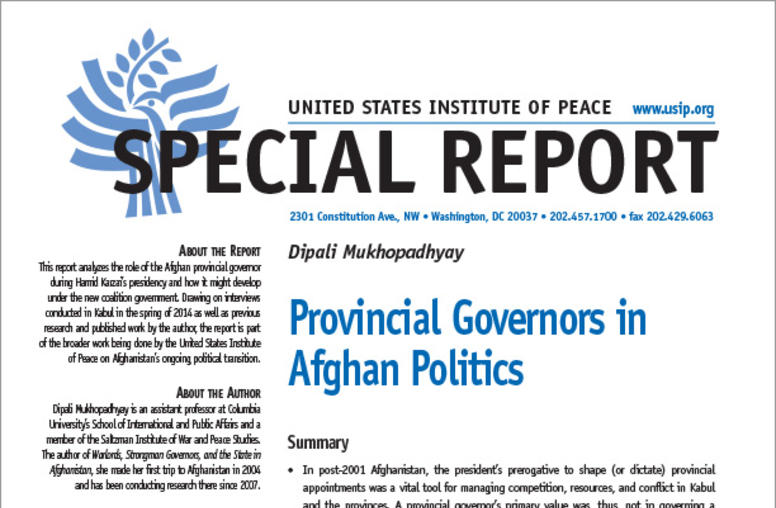
Provincial Governors in Afghan Politics
The presidency of Hamid Karzai was a significant transition for Afghanistan. This report describes subnational politics—specifically, provincial governorships—over the period in general terms, exploring the gaps between assumptions that drove belief in the possibility of a radically new and improved brand of governance and the realities on the ground. The findings aim to inform a more realistic outlook not only on Afghan politics past and future, but also on subsequent foreign-led interventio...

Resources over Reform in Afghanistan
The election of Ashraf Ghani as president in 2014 gave Afghans and the international community hope that political reform was on its way. However, thus far, little has been achieved to improve governance and reduce corruption, especially at the local level. Based on interviews conducted in four communities in Afghanistan, this report reveals that economic and security changes are having the greatest impact on local politics, keeping the powerful elite in positions of influence as they compete...
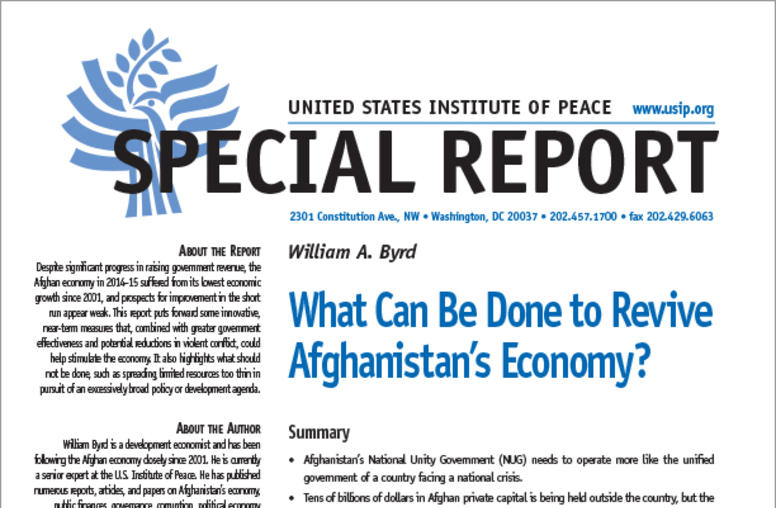
What Can Be Done to Revive Afghanistan’s Economy?
Reviving the Afghan economy during a time of intensifying violent conflict, declining external financial aid, and ongoing political uncertainty and dysfunction will be extremely challenging. But the country cannot wait for these entrenched problems to be addressed. While keeping expectations modest, this report proposes some targeted, near-term measures to increase confidence and stimulate the economy. Rather than engaging in politics as usual and following conventional policy prescriptions t...

UNSCR 1325 in the Middle East and North Africa: Women and Security
The United Nations Security Council passed Resolution 1325 fifteen years ago. The resolution addresses the disproportionate impact war has on women and reaffirms their important role in conflict management, conflict resolution, and sustainable peace processes. This report pulls from interviews conducted with academics, activists, government officials, and nongovernmental leaders in Egypt, Iraq, Israel, the Palestinian territories, and Tunisia. It examines the benefits and challenges of the re...
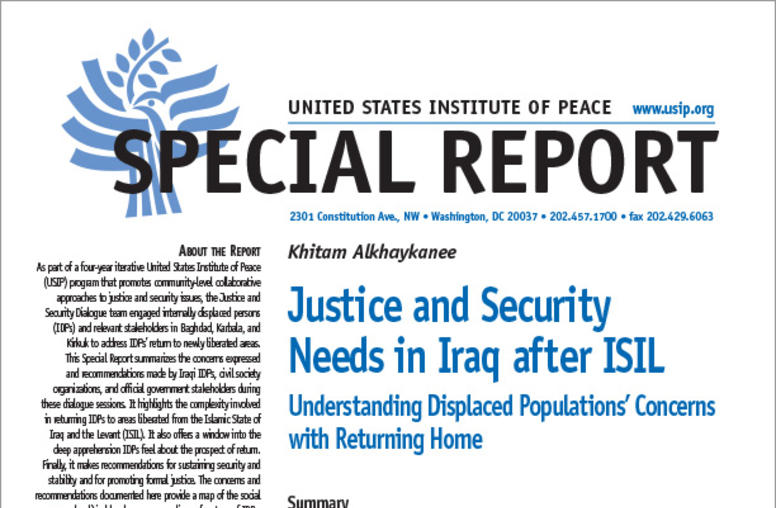
Justice and Security Needs in Iraq after ISIL
Many of the three million-plus internally displaced persons (IDPs) living in Iraq wish to return to their homes in areas no longer controlled by the Islamic State of Iraq and the Levant (ISIL). But weak security and informal justice in these areas make safe return a challenge. IDPs, civil society organizations, and official stakeholders met in Baghdad, Karbala, and Kirkuk under USIP’s Justice and Security Dialogue program to voice concerns about and offer suggestions for safe return. This Spe...